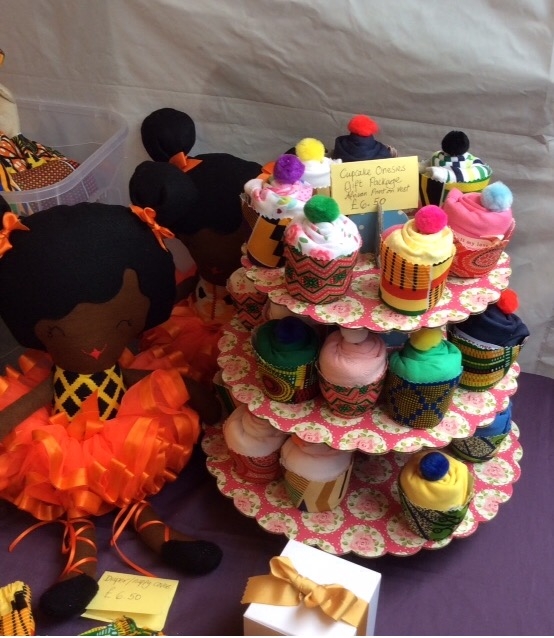
It may not be a new phenomenon in the UK but it is refreshing to see so many second-generation Africans embracing their cultural roots and turning that appreciation into successful businesses.
The trend is most visible in the melting pot that is London where African migration easily dates back to Tudor times. Subsequent waves of migration have followed with people of African descent making an indelible mark on Britain’s landscape over the last 60 years.
The move for some of my parents’ generation in the early 1970s came with an unconscious decision to assimilate and stay under the radar while they furthered their education or boosted their employment prospects. Many had every intention of returning home and that meant sucking up the racism they encountered, and not speaking out. However, for those that chose to make the UK their home, this mechanism of ‘survival’ was passed on to their children.
For many from my generation, we were subconsciously schooled in the art of holding back our true identities when among our non-African peers. We were not encouraged to learn our mother tongue, or feel at ease exploring our history and culture. I grew up feeling like a minority within a minority for that very reason because celebrating ‘Africanness’ was not cool. I faced resistance within my African circles for shunning bleaching creams, or opting to wear my hair as God intended….au natural.
So it has been a triumph for me to see so many Anglo-Africans take the pride I have in myself one step further by creating movements and businesses that essentially say it is ok being yourself.
Examples that spring to mind are Afrocenchix, the London-based hair care business that was founded five years ago by British-Ghanaian Rachael Corson and British-Nigerian Joycelyn Mate. Their decision to develop products specifically for those Black people opting to wear their hair naturally came because of a gap in the market.
Both women grew up thinking relaxed hair was better, and a sign of beauty even if that meant suffering from scalp sores, hair breakages and low self-esteem. Seeing that they were not alone and learning about the health risks from using these products spurred the duo into developing hypoallergenic, and chemical-free alternatives.
Market research firm Mintel estimated the size of the black hair care market in the US at $946 million (£664 million) in 2015. The figure is harder to pin down in the UK but it is estimated that Black women spend up to six times more on hair and beauty products than other ethnicities.
Despite being a growing segment of the global hair care market, they are the least tested and most big companies profiting from their sales are not users of the products. For Corson and Mate, it was important for them as African women to be endorsing products that women with similar hair textures could use confidently.
The results have been positive with their customer base extending to India, Canada and Ghana.
Social media has been key in fuelling their success and has helped to create a democratising space for the duo to engage immediately with customers and tweak their brand offerings.
British-born siblings Emeka and Ifeyinwa Frederick, who hail from Nigeria and Grenada, are using a similar strategy. Their tapas-style fusion food offering evolved from a lack of representation of Nigerian cuisine in the UK, and a desire to improve the image of West African cuisine.
The pair established Chuku’s – a pop-concept claimed to be the first of its kind in the world – that delivers traditional Nigerian dishes with a twist.
Their last menu included quinoa jollof and chin chin cheesecake. Using the tapas style allows the pair to deliver small portions relatively quickly to diners. Those new to Nigerian food get the chance to sample a little rather than having to deal with a plateful of unfamiliar flavours.
The pop-up concept means the pair can constantly test new dishes with minimal wastage; tailor their investment to demand, and gain first-hand insight into making the brand better.
After being in operation for less than a year (August 2015), the pair are looking to establish a permanent spot in London.
Then there’s Chika’s, a new line of snacks from founder Chika Russell, who some of you will remember impressed judges in BBC2’s Dragon’s Den entrepreneurial show. Russell aims to elevate the perception of West African nibbles such as plantain crisps so they are seen as a healthier alternative to potato crisps.
Chika’s strap line says it all: ‘When a snack comes from here, [the Motherland] it’s not going to be a re-constituted potato ring, is it.’
Focussing on the health benefits of her snack range, particularly in today’s health conscious society, is her unique selling point. And Russell’s strategy seems to be bearing fruit as her wares are available in such supermarket shelves as Wholefoods, and Waitrose, as well as independent shops and delicatessens.
The list of successful African-run businesses is growing and is likely being boosted by the plethora of African events staged on a regular basis across the UK. During 2015, I attended a host of ‘African-inspired’ events. They included African Fashion Week London, Africa Utopia, Film Africa, Africa @ Spitalfields, August in Africa, and Africa on the Square…to name but a few.
Exposure to Africa’s many cultures, cuisine, music and clothes have always influenced British people. But now we are seeing more Africans taking ownership of that market and steering its direction.
So it seems that it has never been a better time than now to celebrate the richness, diversity and beauty of the African continent.
Author: Kirsty Osei-Bempong is a journalist and blogger who writes primarily on aspects of West African cultures, arts and history. Her work can be found at www.misbeee.blogspot.co.uk



